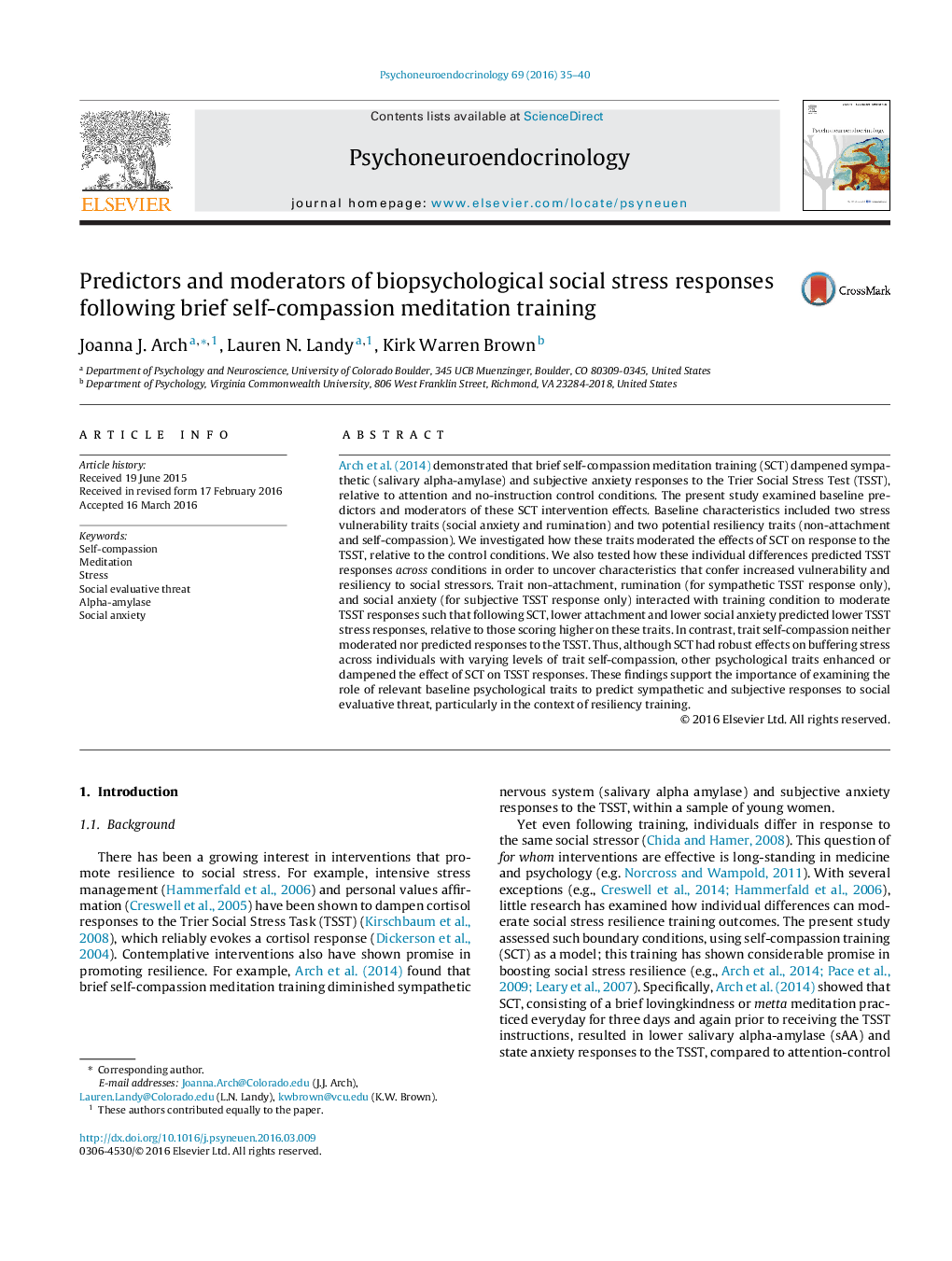| کد مقاله | کد نشریه | سال انتشار | مقاله انگلیسی | نسخه تمام متن |
|---|---|---|---|---|
| 6818041 | 547474 | 2016 | 6 صفحه PDF | دانلود رایگان |
عنوان انگلیسی مقاله ISI
Predictors and moderators of biopsychological social stress responses following brief self-compassion meditation training
ترجمه فارسی عنوان
پیش بینی کننده ها و مدیران پاسخ های استرس زیستی روان شناختی، به دنبال تمرین مدیتیشن کوتاهی از خودباوری هستند
دانلود مقاله + سفارش ترجمه
دانلود مقاله ISI انگلیسی
رایگان برای ایرانیان
کلمات کلیدی
خودخواهی، مراقبه، فشار، تهدید ارزیابی اجتماعی، آلفا آمیلاز، اضطراب اجتماعی،
موضوعات مرتبط
علوم زیستی و بیوفناوری
بیوشیمی، ژنتیک و زیست شناسی مولکولی
علوم غدد
چکیده انگلیسی
Arch et al. (2014) demonstrated that brief self-compassion meditation training (SCT) dampened sympathetic (salivary alpha-amylase) and subjective anxiety responses to the Trier Social Stress Test (TSST), relative to attention and no-instruction control conditions. The present study examined baseline predictors and moderators of these SCT intervention effects. Baseline characteristics included two stress vulnerability traits (social anxiety and rumination) and two potential resiliency traits (non-attachment and self-compassion). We investigated how these traits moderated the effects of SCT on response to the TSST, relative to the control conditions. We also tested how these individual differences predicted TSST responses across conditions in order to uncover characteristics that confer increased vulnerability and resiliency to social stressors. Trait non-attachment, rumination (for sympathetic TSST response only), and social anxiety (for subjective TSST response only) interacted with training condition to moderate TSST responses such that following SCT, lower attachment and lower social anxiety predicted lower TSST stress responses, relative to those scoring higher on these traits. In contrast, trait self-compassion neither moderated nor predicted responses to the TSST. Thus, although SCT had robust effects on buffering stress across individuals with varying levels of trait self-compassion, other psychological traits enhanced or dampened the effect of SCT on TSST responses. These findings support the importance of examining the role of relevant baseline psychological traits to predict sympathetic and subjective responses to social evaluative threat, particularly in the context of resiliency training.
ناشر
Database: Elsevier - ScienceDirect (ساینس دایرکت)
Journal: Psychoneuroendocrinology - Volume 69, July 2016, Pages 35-40
Journal: Psychoneuroendocrinology - Volume 69, July 2016, Pages 35-40
نویسندگان
Joanna J. Arch, Lauren N. Landy, Kirk Warren Brown,
